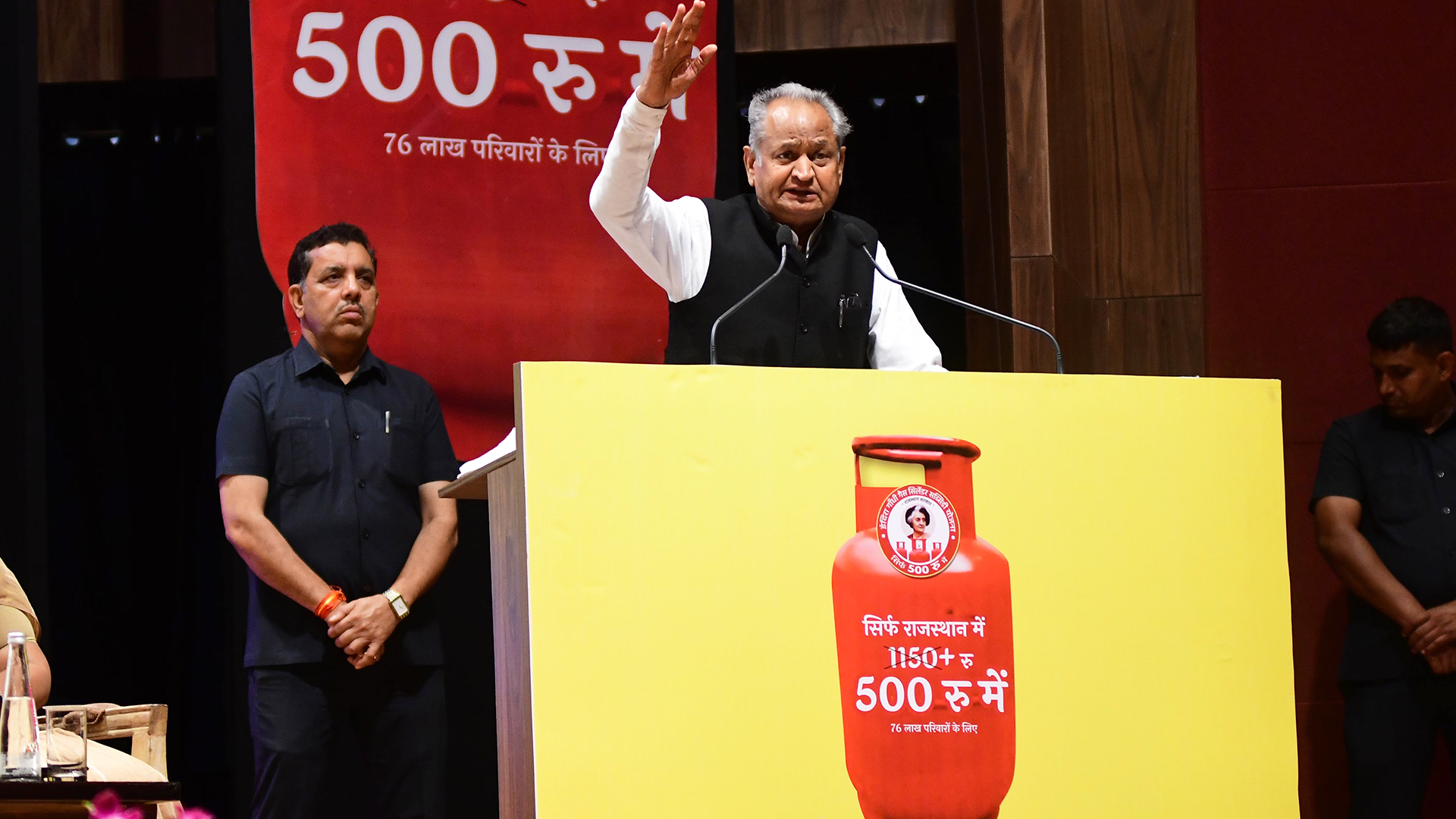
In the lead-up to the elections, the Congress harbours optimism that its multifaceted welfare initiatives may break historical voting patterns. Since ascending to power in this term, the Gehlot government has implemented an array of welfare schemes, encompassing nearly all segments of the population. This article dives into the impact these have had on the state and the potential influence on the trajectory of the upcoming elections.
Among the standout initiatives is the Mukhyamantri Chiranjeevi Swasthya Bima Yojana, offering health insurance coverage initially capped at 5 lakhs but later elevated to an impressive 25 lakhs. Eligible families under this scheme can access a comprehensive array of medical services from both private and government hospitals. Launched On May 1, 2021 during the COVID-19 pandemic, it not only provided crucial support to the public but also represented a significant stride in healthcare accessibility. The scheme also garnered recognition for providing timely relief to families affected by the pandemic. Nevertheless, the scheme encountered opposition from the medical community, citing concerns such as compensation inadequacies and heightened workloads. However, the Congress adeptly navigated these challenges, successfully resolving the issues and bringing an end to the community's strike.
| Budget Allocated (FY 2023-24) | Beneficiaries | Population Coverage |
|---|---|---|
| Rs. 2100 Crore | 1.44 crore families | 88% |
Notably, Rajasthan has carved its name in history as the very first state to enact the Right to Health Bill. This initiative has paved the way for a more inclusive healthcare system, demonstrating the potential to transform the lives of lakhs of people. At the grassroots level, these schemes have garnered substantial popularity, particularly among the economically disadvantaged sections of society which can influence the way they vote in the elections.
The revival of the Old Pension Scheme is the second most embraced initiative in the state. Its popularity has translated into substantial support from individuals who entered the workforce in 2004, proving instrumental in securing electoral victories, as evidenced in the electoral win in Himachal last year.. Notably, the BJP has refrained from providing a definitive assurance on the continuity of this policy, thereby ensuring that this particular voter base remains aligned with the Congress government without harbouring discontent.
The government has implemented Indira Gandhi Gas Cylinder Subsidy Scheme under which families eligible for the Ujjawala Scheme can now acquire subsidised LPG cylinders at the nominal cost of Rs. 500 which benefits over 76 lakh families. Launched just a few months before the impending elections in 2023, this program signifies a significant step towards providing relief to numerous women, particularly those residing in rural areas who continue to rely on fuel for cooking. Previously, the soaring prices of LPG cylinders, exceeding Rs. 1000, had posed a considerable challenge, rendering these essential resources inaccessible to many. This especially affected women who found themselves unable to afford the cylinders on top of the refills which were just as costly.
The government's introduction of the Indira Gandhi Free Smartphone Yojana stands out as another noteworthy initiative, aiming to provide smartphones to 1.35 crore female heads of Chiranjeevi families. In a context where smartphones may not be conventionally deemed a necessity, this scheme is significant as it enables women to access previously unattainable resources. Beyond the provision of a device, the initiative plays a pivotal role in narrowing the digital divide and addressing gender disparities.
However, the BJP persistently emphasises the high incidence of crimes against women in the state during its election rallies, underscoring a purported lack of law and order. Despite measures taken by the government, there remains a significant need for improvement in the state for the safety of women.
This may influence women voters to vote for BJP in hopes of a decrease in the crime rate if they were the ones in power instead of Congress. For instance, under the Ujjawala scheme, women already benefit from subsidised LPG cylinders. Adding to the complexity, Prime Minister Modi has provided his guarantee on the continuity of welfare schemes if they are voted into power. The congress government after coming into power waived the farm loans which has helped them gain credibility in the state as well.
The state has witnessed a surge in unemployment levels, compounded by the additional challenge of leaked government recruitment exams. Some segments of the population also feel that the welfare schemes introduced by the Gehlot administration lack financial viability. The emphasis should be on investing in the development of the state and addressing structural issues and challenges, especially those faced by women, instead of focusing solely on financial assistance.
While the impact of these schemes cannot be denied, the prevailing uncertainty centres on whether these schemes will be sufficient to secure another term for the incumbent government amidst or if the effectiveness of Modi's guarantee and the BJP's strategic manoeuvres will prove to be more compelling. It's worth noting that Vasundhara Raje also implemented welfare schemes during her tenure as the Chief Minister but faced defeat in the subsequent elections. Whether the Congress will encounter a similar fate remains uncertain.

Dhruv Research owned by DHRUVA RESEARCH
Copyright © 2021
DHRUVA RESEARCH.
All rights reserved.